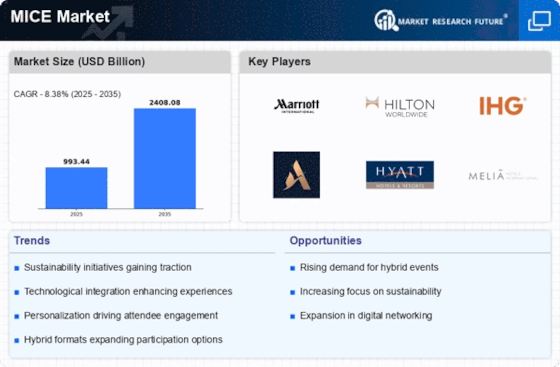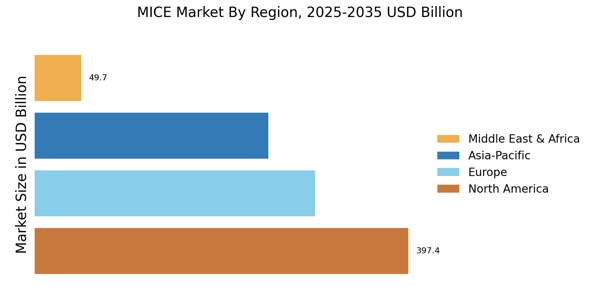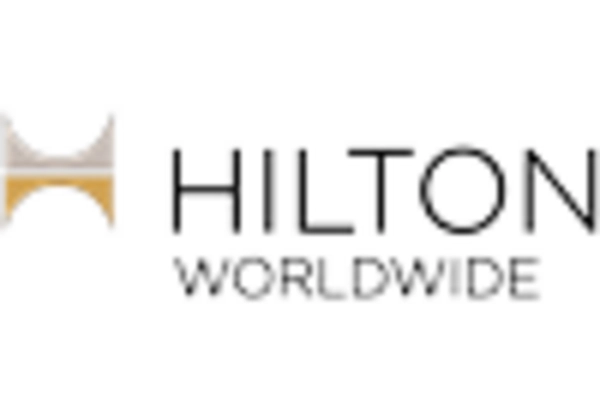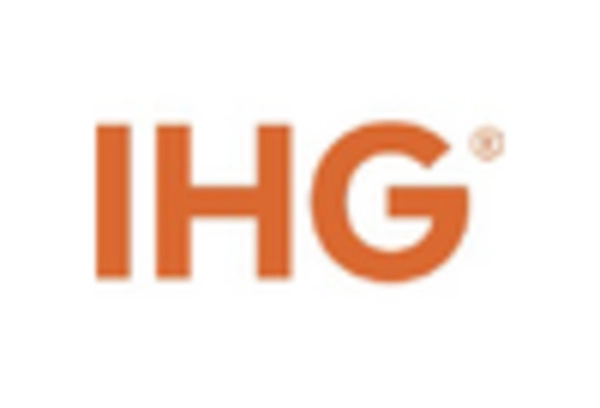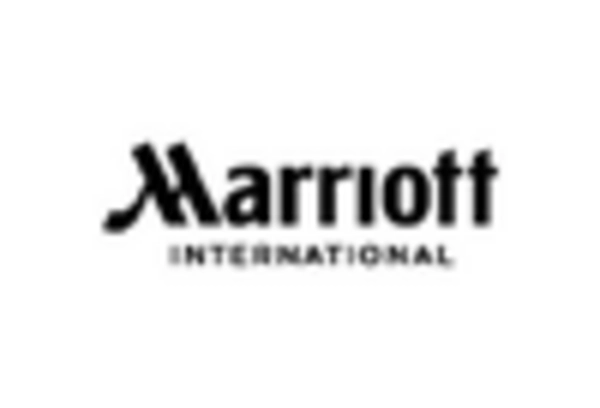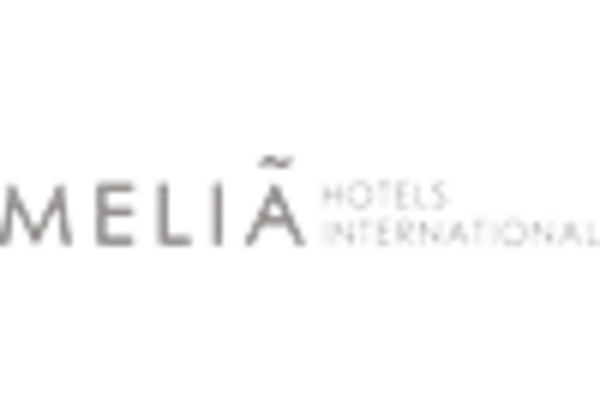Rise of Corporate Travel
The MICE Market is experiencing a notable increase in corporate travel, driven by the need for businesses to engage in face-to-face interactions. Companies are recognizing the value of in-person meetings, conferences, and events to foster relationships and enhance collaboration. According to recent data, corporate travel spending is projected to reach approximately 1.5 trillion dollars by 2025, indicating a robust demand for MICE Market services. This trend suggests that organizations are prioritizing investment in MICE Market activities to boost productivity and innovation. As a result, the MICE Market is likely to see a surge in demand for venues, accommodations, and related services, creating opportunities for growth and expansion.
Emergence of Hybrid Events
The MICE Market is witnessing a significant shift towards hybrid events, which combine in-person and virtual experiences. This trend appears to be driven by advancements in technology and changing attendee preferences. Hybrid events allow for greater flexibility, enabling organizers to reach a wider audience while accommodating those who prefer to participate remotely. Data indicates that the hybrid event segment is expected to grow at a compound annual growth rate of over 20% in the coming years. This evolution in event formats suggests that the MICE Market must adapt to new technologies and strategies to remain competitive and meet the diverse needs of clients and attendees.
Sustainability Initiatives
The MICE Market is progressively embracing sustainability initiatives as a core component of event planning and execution. Stakeholders are increasingly aware of the environmental impact of large gatherings and are seeking ways to minimize their carbon footprint. This includes utilizing eco-friendly venues, reducing waste, and promoting sustainable transportation options. Recent studies suggest that 60% of event attendees prefer to participate in sustainable events, indicating a shift in consumer preferences. As a result, the MICE Market is likely to see a rise in demand for sustainable practices, which could enhance brand reputation and attract environmentally conscious clients.
Increased Focus on Health and Safety
The MICE Market is increasingly prioritizing health and safety measures in response to evolving consumer expectations. Event organizers are implementing stringent protocols to ensure the well-being of attendees, which includes enhanced sanitation practices and crowd management strategies. This focus on health and safety is likely to influence venue selection and event planning processes. According to industry reports, 70% of event planners now consider health and safety as a top priority when organizing MICE Market activities. This trend indicates that the MICE Market must continue to innovate and adapt to maintain attendee confidence and satisfaction, ultimately shaping the future of event experiences.
Technological Advancements in Event Management
The MICE Market is being transformed by technological advancements that streamline event management processes. Innovations such as event management software, mobile applications, and virtual reality experiences are enhancing the planning and execution of MICE Market activities. These technologies enable organizers to improve attendee engagement, facilitate networking opportunities, and gather valuable data for future events. Market analysis suggests that the adoption of event technology is expected to grow by over 15% annually, reflecting the industry's commitment to leveraging technology for improved efficiency and attendee satisfaction. This trend indicates that the MICE Market must continue to invest in technological solutions to remain competitive and meet the evolving demands of clients.


